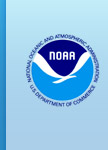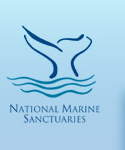Frequently Asked Questions
Below is a list of frequently asked questions about Florida Keys National Marine Sanctuary. Click on the question to view the answer.
If you have a question that you don’t see listed here, let us know at floridakeys@noaa.gov.
-
When is lobster season?
+There are two lobster seasons within Monroe County, Florida, where the majority of Florida Keys National Marine Sanctuary is located. The two-day sport lobster season is the last consecutive Wednesday and Thursday of July. Regular lobster season is August 6 through March 31. View this brochure (pdf, 350 kb) for additional information.
-
How do I know if I am in a no-take or no-fishing zone in the Florida Keys?
+Sanctuary Preservation Areas and Ecological Reserves in Florida Keys National Marine Sanctuary are marked by 30" diameter yellow buoys around the perimeter of the zone. Mooring buoys within these zones will be marked with a sticker which denotes that fishing is not allowed. The exception is that the two parts of the Tortugas Ecological Reserve (North and South) are not marked.
-
Am I allowed to camp on islands in the Florida Keys?
+Everglades National Park has only a few islands in Florida Bay that can be visited during the day and have designated camp sites. A permit is required to camp on these islands.
Camping is prohibited on all publicly owned islands in National Wildlife Refuges within the Keys.
There are some private islands that people historically camp on, but this technically requires the permission of the property owner.
-
Where can I get a copy of the latest Florida fishing regulations?
+You can get copy of the latest Florida fishing regulations on the Florida Fish and Wildlife Conservation Commission website.
-
Am I allowed to bring my dog on "backcountry" islands in the National Wildlife Refuges and National Parks?
+No. Due to the sensitive nature of the habitat and the need to not cause disturbance to nesting birds or sea turtles, pets are not allowed on islands managed by the U.S Fish and Wildlife Service or the National Park Service.
-
What rules pertain to interacting with wild dolphins?
+Dolphins' natural behavior can be easily disturbed and viewing dolphins in the wild should be done respectfully and from a distance of at least 50 yards. Feeding wild dolphins or close interactions such as swimming that interrupt important behaviors like resting, feeding, and nursing are prohibited by the Marine Mammal Protection Act.
-
Where can I swim with dolphins?
+Because dolphins' natural behavior can be easily disturbed, interaction with dolphins in the wild should be done respectfully and limited to viewing these mammals from a distance of at least 50 yards. Certain permitted facilities in the Florida Keys do offer opportunities to swim with trained dolphins.
-
Where can I find weather information, buoy data, or tides information for the Florida Keys online?
+For Florida Keys weather information, visit the National Weather Service Key West web page.
NOAA's National Data Buoy Center maintains several buoys in the Florida Keys that collect information such as air and water temperature, wind speed, and atmospheric pressure.
Florida tide predictions are available from the Center for Operational Oceanographic Products and Services (CO-OPS). CO-OPS also maintains the Key West tide station.
-
Can I make a camping reservation at Florida Keys National Marine Sanctuary?
+The sanctuary boundary starts at the mean high water mark and therefore the sanctuary does not operate any campgrounds. There are private campgrounds and state park campgrounds throughout the Keys where you can make a camping reservation.
-
Can I book a snorkel or dive trip with Florida Keys National Marine Sanctuary?
+The sanctuary does not conduct snorkel or dive trips; however, we encourage you to book such trips with Blue Star operators, to help protect our coral reefs.


